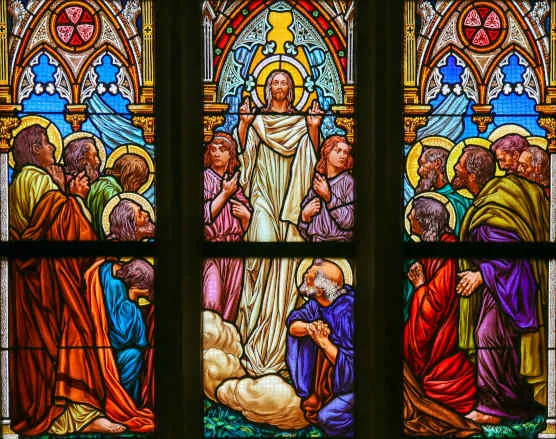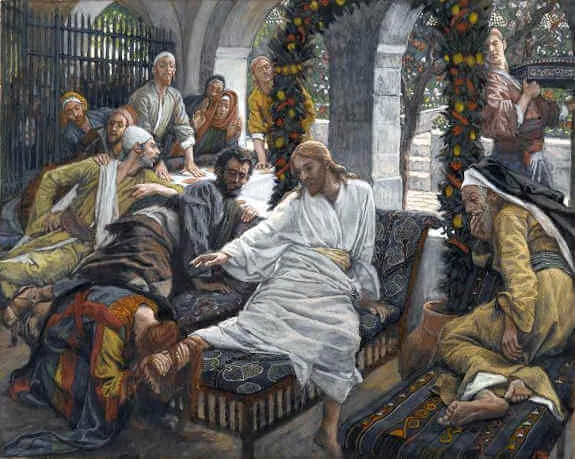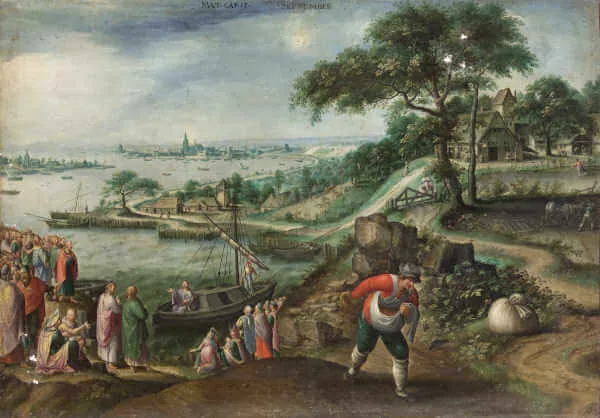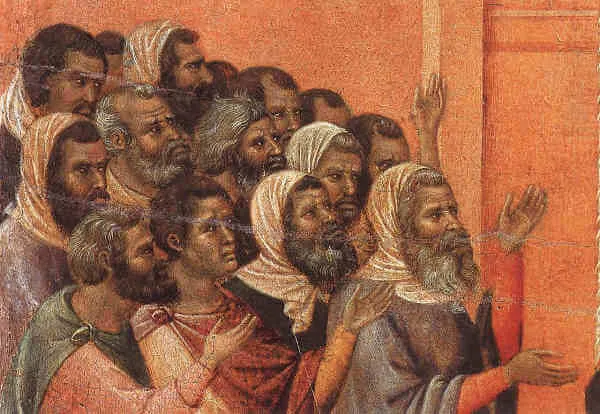The Greatness of Holiness
They came to Capernaum and, once inside the house, he began to ask them, “What were you arguing about on the way?” But they remained silent. They had been discussing among themselves on the way who was the greatest.
Reflection:
One of the desires that we all have is for greatness. This is a good and natural desire. This desire is manifested in competitiveness in sports and games. It becomes a driving force in business and politics. It drives us to do better in life, such as in school, artistic endeavors, and hobbies, working hard to perfect various skills and talents so as to excel. The problem is that every good and natural desire we have is now disordered to a certain degree because of original sin. As a result, the desire we have for greatness can become an obsession, a cause of discouragement when we fail, a source of jealousy when others appear to do better, and can lead us to pursue empty and fleeting goals in life.
Even within the life of faith, we can be affected by both the natural desire for greatness and the fallenness of that desire. The natural desire for greatness, when mingled with faith, will lead us to the desire to be a saint and to do great things for the Kingdom of God. But as a fallen natural quality, we can also fall into the trap of seeing ourselves in competition with others within the Church, and we can become jealous of those who appear to be holy and who are recognized for their good work for Christ.
Just prior to the passage quoted above in which the disciples were discovered to have been arguing among themselves about who was the greatest, Jesus predicted to them, for the second time, that He would suffer and die. Recall that after the first prediction of His passion, Jesus took Peter, James and John up a high mountain and was transfigured before them. Perhaps some of the other disciples became jealous of this apparent special treatment. Then, after Jesus predicted His passion to them for the second time, they might have wondered if some of them would likewise share in a similar experience as the Transfiguration.
Regardless of what motivated the disciples to argue among themselves about who was the greatest, the fact remains that they did so. This was not the result of a holy and purified desire. It was the result of a good desire for greatness that became distorted and turned into an unholy competition based on jealousy and selfishness.
In Heaven, we will all know who is the greatest. Interestingly, the Scriptures, the official Church teachings, and many of the saints reveal to us that there will be levels of glory in Heaven. This is why Jesus said elsewhere, “Store up treasure in Heaven” (Matthew 6:20). In Heaven, each of us will be perfectly happy. But each of us will also share in God’s glory in varying degrees, based upon the merit of our charity on earth. The classic example of this is that if every soul is like a glass of water in Heaven, then every glass will be full. But some glasses will be larger than others and will be able to contain more water (glory). For this reason, we must remember that the natural desire for greatness is good, but it must be properly ordered by grace. That desire must not become as it was among the disciples who saw each other as competitors. Instead, it must be directed to the deepest desire for holiness and charity. In Heaven, we will all be in awe of those holy souls who are filled with the greatest depths of glory forever. Most likely, they will be widely unknown on earth, but loved and admired in Heaven for the greatness of their holiness.
Reflect, today, upon the desire within your own soul for greatness. Pray that this desire will not fall into selfishness or lead you to see others as competitors. Instead, pray that your desire for greatness will lead you to holiness so that you will be able to store up for yourself the most abundant treasures in Heaven and radiate that glory forever.
Source: https://catholic-daily-reflections.com/2024/09/21/the-greatness-of-holiness/








